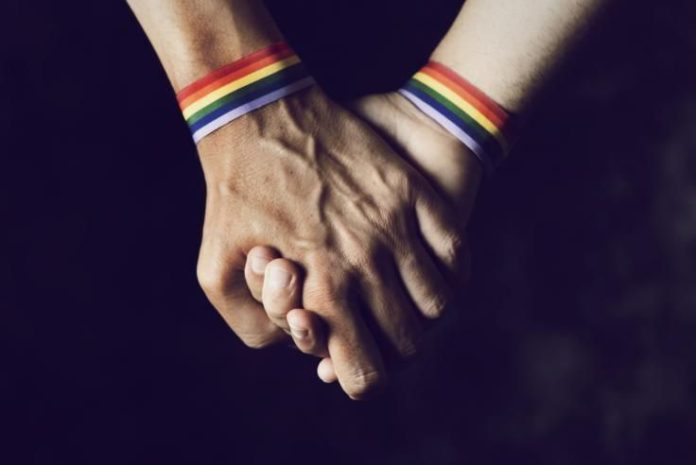The LGBT travel market is worth an estimated $211 billion worldwide, but in many parts of the world, queer travelers face unique safety concerns. More than 70 countries still criminalize homosexuality—including popular tourist destinations like Barbados, Jamaica, Egypt, Dubai and Singapore. Even in places where same-sex relations aren’t illegal, there can be harassment, threats and violence. It’s the last thing you want to think about on vacation, but it’s the world we live in.
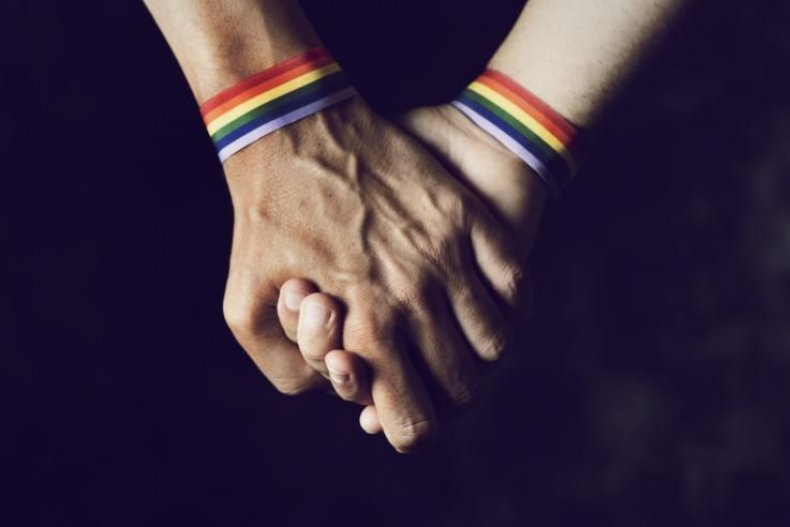
Getty
According to Community Marketing & Insights (CMI), 64 percent of LGBT travelers say their safety as a member of the community is a chief concern while traveling internationally. And 45 percent of transgender Americans said they’ve felt threatened with physical or verbal abuse on a trip.
As companies increasingly cater to the LGBT demographic, there’s growing awareness of those concerns: Launched in 2014, the GeoSure app provides hyperlocal safety information for hundreds of destinations all over the world—from the country level down to the neighborhood. Scores are assigned to each area based on data from the State Department, the U.N., and other credible bodies, as well as crowdsourced first-person reviews. “We’re not trying to dissuade people from traveling,” GeoSure CEO Michael Becker tells Newsweek. “We want people to travel all over the world. We just want them to do it in an informed, intelligent and inspired way.”
In addition to scores for physical harm, theft, medical issues and women’s safety, GeoSure recently added a filter so users can see areas scored specifically for LGBT safety. “We look at the regional, country, city and neighborhood level,” Becker explains. “We look at the religious and political environment, the customs and laws, crime stats [and] unstructured data, like local headlines.”
If you’re traveling to a new city, whether in the U.S. or internationally, here are several tips to help ensure your trip is safe and relaxing.
1. Do Your Homework
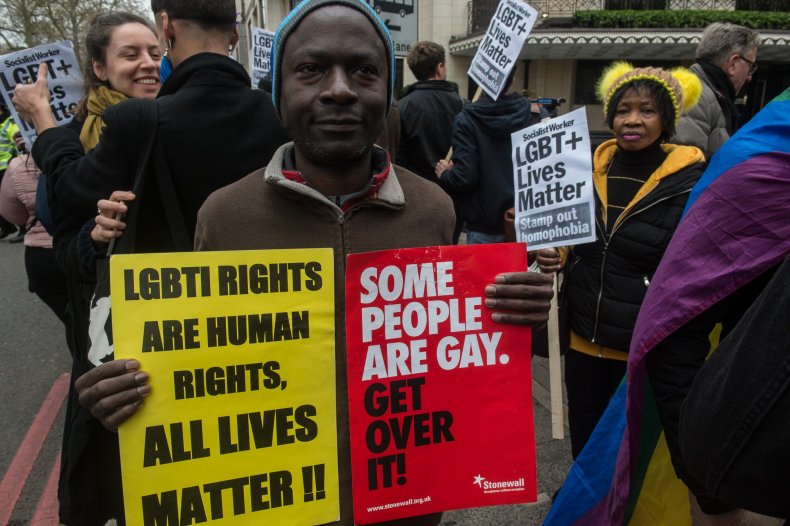
Guy Smallman/Getty Images
Before you even book your flight, research the situation for LGBT people. Is homosexuality illegal? Are queer people looked at with disdain? Will the front desk balk if you and your partner request a queen-size bed?
Whether or not to visit a country where the LGBT community is marginalized is ultimately your decision, but it should be an informed one. The State Department’s LGBT Travel page is a good starting point, and you can find detailed city and country information on sites like GayCities, TravelGay, Out Traveler, Spartacus and Radr.
2. Use Discretion
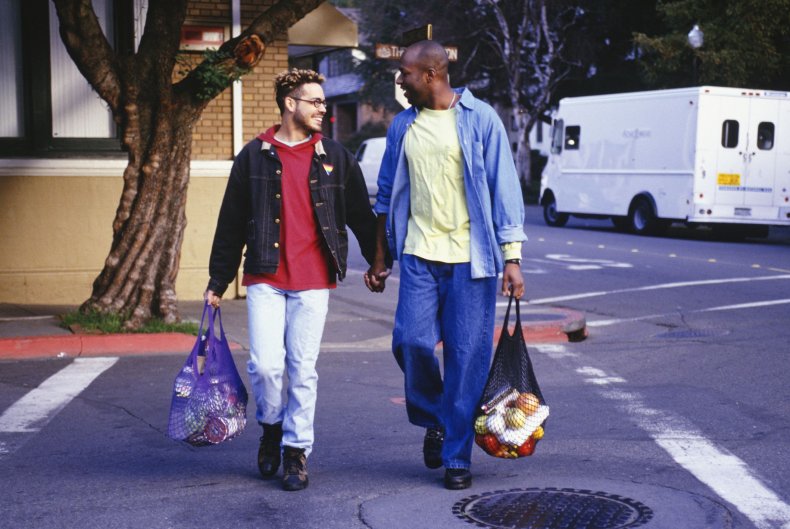
It’s not fair, but simple displays of affection—kissing or just holding hands—can be problematic, even dangerous, depending on where you are. You might feel like taking a stand, but as an outsider you’re at a distinct disadvantage.
“Observe the laws and respect local customs and cultures,” says Becker. “Exercise discretion and comport yourself appropriately. If you’re meeting someone for the first time, be discreet. It comes down to knowing your audience.”
3. Know Your Rights
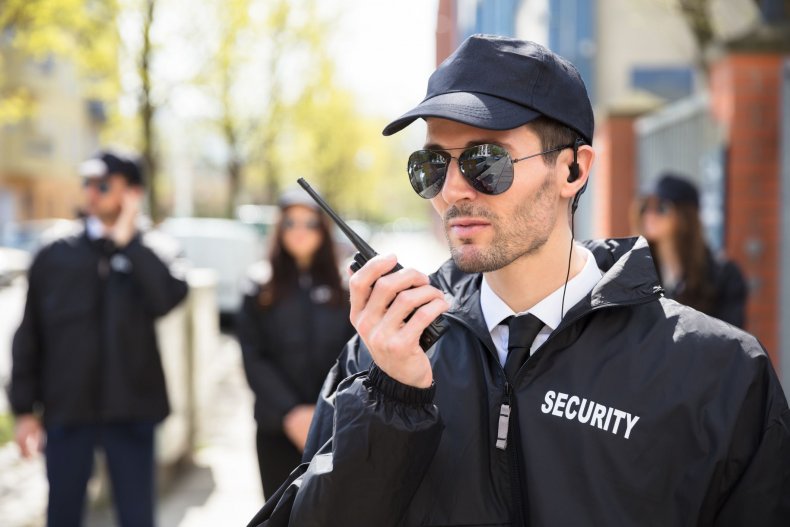
In the United States, the TSA can’t legally ask transgender passengers to remove prosthetics or binders. But that’s not the case everywhere—in some countries, just bringing sexually explicit material, or even condoms, can be used as evidence of sex work.
If you’re traveling with a spouse, you may want to bring proof of your relationship status. If one of you needs medical attention or gets into trouble with the authorities, it may be difficult to assert your marital rights otherwise.
4. Patronize LGBT-Friendly Businesses

Renaissance/Marriott
A growing number of hotels, restaurants and resorts don’t just welcome LGBT guests, they seek them out: Chains like Marriott, Hilton and Preferred Hotels have microsites aimed at gay visitors and IGLTA and TAG both accredit accommodations that meet certain requirements—like having inclusive non-discriminatory policies and training staff on LGBT issues.
Home-sharing is a great way to meet locals, but you don’t want to have to guess if your Airbnb host is an ally. EBAB and misterb&b focus on LGBT and LGBT-friendly accomodations and, crucially, their hosts can also impart how to navigate being gay in their city.
Matthieu Jost actually founded misterb&b after he and his partner were turned away by a homophobic renter in Barcelona. The site has listings in more than 135 destinations (not all gay-friendly) and works to protect both travelers and hosts. In repressive areas, for example, hosts have the option of keeping their profile photos private.
“In Russia, we found our hosts are very eager to welcome gay travelers,” Jost tells Newsweek. “It’s a way for them to connect with their community when they normally can’t.”
If you’re booking a package tour or cruise, consider an LGBT-focused operator. Not only will you be supporting allies, but they’ll know the local landscape, connect you with your community and treat you with respect. Top operators include Detours, Vacaya, Olivia (lesbian-focused), Out Adventures, R Family Vacations (good if you have kids), Atlantis Cruises and Rainbow Gay Tours.
“Every LGBTQ person has a different level of comfortability in their outness,” Vacaya CEO Randle Roper tells Newsweek. “We see some travelers dial it down while others amplify it. At Vacaya we try to create an atmosphere where people are free to be exactly who they are.”
A gay cruise or tour, says Roper, also means being in the majority, possibly for the first time. “That single change from being an always-minority to a sudden-majority can have a profoundly positive real-world effect.”
5. Be Smart About Hooking Up
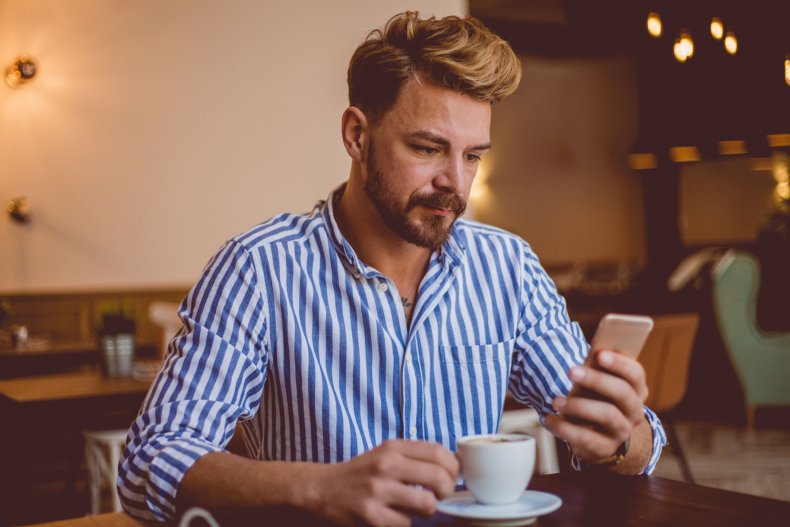
Getty
Sure, a vacation fling can be a lot of fun, but there are risks, too: An unsuspecting tourist is a prime mark for robbery, blackmail or worse. In some countries, authorities monitor gay dating sites to entrap users. You may find yourself in legal trouble or expected to bribe a police officer.
If meeting someone online, ask for a photo and details about their favorite hangouts. Tell someone where you’re going, even if it’s the hotel concierge. (You don’t have to go into a lot of details.) Meet your date in public and be aware of any red flags.
“Basically, don’t make yourself a target,” says Becker. “Be mindful where you’re going at night. Have your antenna up—don’t meet in a sketchy area and don’t accept strange drinks.”
6. Always Know Where to Find Help
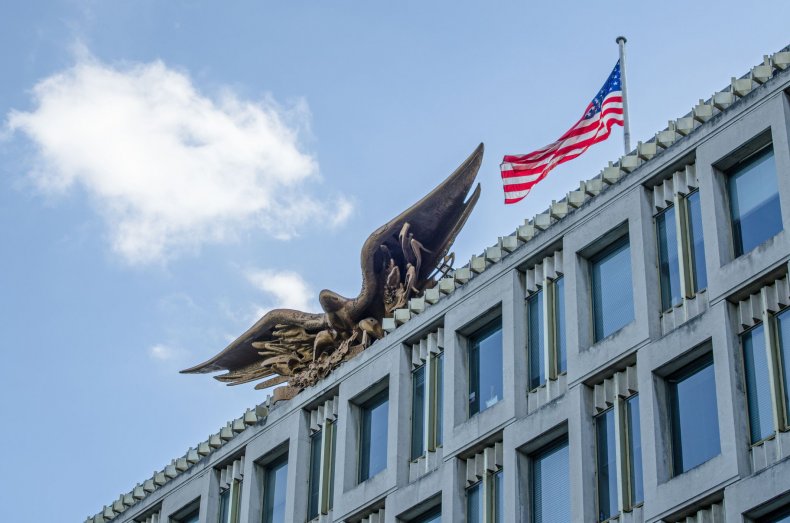
Getty
If you’ve been threatened or victimized, and you don’t believe it’s safe to go to the local authorities, contact the nearest U.S. Embassy or consulate. Consular staff will protect your privacy and (ideally) avoid making assumptions or passing judgment. If you are arrested, immediately ask the police to notify the embassy.
OutRight International is a global LGBT rights group that may be able to connect you with local activists, lawyers and resources.

